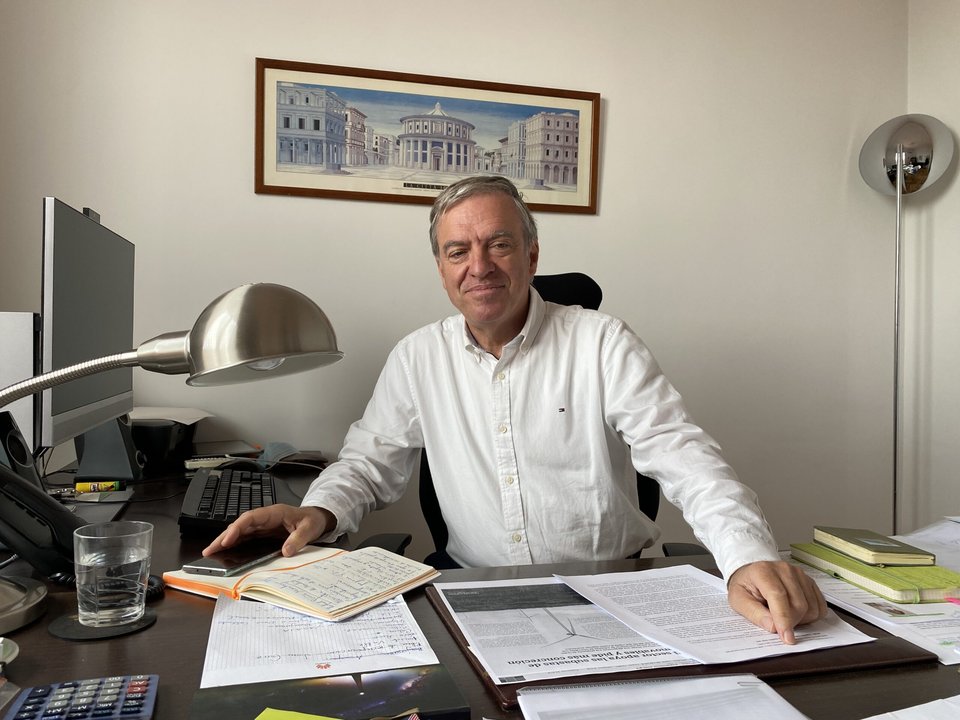Member/Partner News
2020, a year of resilience and transition

José Donoso, UNEF General Manager
If we had to describe the year 2020 in two words, perhaps, these would be resilience and transition.
Resilience because we began the year in an atmosphere of euphoria with record figures for 2019, 4,159 MWs were connected on the ground and 450 MWs of self-consumption. We also achieved two milestones. On one hand, almost all the auctioned plants were connected, and, on the other hand, connected plants’ remuneration did not depend on any public action for the first time.
However, soon appeared, in the form of a virus, what the financial essayist Nassim Taleb calls a black swan, a completely unexpected event that alters all forecasts. At first it seemed that the impact would be greater, but the sector showed its capacity to resist and this impact was gradually absorbed.
The plants on the ground only experienced several weeks of delays in their programming. In fact, this year we have achieved a historic milestone, not only in Spain: by november we had already connected 1,517MW to market or through PPAs. This landmark triggered a debate on whether or not to call for auctions.
But also the confinement showed the limitations of the existing electricity market system. The fall in demand produced an increase in the participation of renewables in the mix, which in turn led to a collapse of prices, working as a "regulatory sandbox", a barbarism in fashion this year.
The recent call for auctions, and the publication of its five-year calendar, has closed the debate and given stability to the photovoltaic industry. Expectations for the results and how they may or may not affect the P.P.A. market remain for 2021. We also expect auctions to be held in 2021 with quotas for projects of less than 10 MW.
Regarding self-consumption, the impact has been uneven according to the type of client. For the large industrial companies, the paralysis has been total, but for the SME depends on how the current crisis has affected the industrial sector in particular. On the other hand, the domestic sector has seen an unexpected boom that makes us hope that at the end of the year may have even exceeded the previous year MWs figure.
A year of transition, on the one hand, because companies have made progress in their administrative procedures. But above all, because it has served to complete the regulatory framework that should lead the sector to meet the objectives set out in the PNIEC. In addition to the auctions already mentioned, the key element that has been demonstrated is to have an adequate regulation that manages the Access and Connection points, providing the system with transparency and equal opportunities while eliminating speculative positions.
In the area of regulation of self-consumption, we have achieved a small reduction in the percentage of the fixed term of the electricity bill, although still far from what it should be desirable. But foremost, UNEF achieved the repeal of the requirement for a building permit in eight autonomous communities, and we continue working to eliminate it in all of them. Although it remains to complete the regulation of collective self-consumption and management of surpluses.
The approval of the Climate Change Act is still pending for next year. We hope it will be approved with the greatest possible consensus and that the opportunity will be taken to transpose the pending aspects of the Renewable Energy Directive, particularly those referring to legal certainty, administrative simplification and the rights of self-consumers.
The greatest challenge remains to be the consolidation of the industrial sector. In this regard, at UNEF, we have presented a Photovoltaic Industrial Strategy in which we set out the challenge of Spain becoming an international photovoltaic hub. The more than twenty thousand million euros that are going to be invested in our sector cannot go by without being used for this purpose.
In this strategy, the need to mobilize private investment, to introduce guarantee lines for exporting manufacturers, to promote the digitalization of the electricity sector and to adopt training and qualification measures to cover the demand for new jobs, among other measures, is pointed out.
But the current crisis also presents an opportunity through the funds of the 'Recovery, Transformation and Resilience Plan'. We have presented a proposal based on three lines of action: innovation, industrialization and training. This plan has 29 measures, which would be financed with funds from the different lines of work of the Recovery Plan, and 35 specific reforms so that the suggested measures have a greater effect on the recovery of the national economy. The idea is that the consolidation of the industrial fabric will be aimed at innovative projects, without forgetting self-consumption, support for storage and progress in the development of green hydrogen.
But this year has also presented negative aspects such as the loss of focus of the priority of the fight against climate change due to the concern for the COVID. Even though, we end up with the good news of the increase by the European Union of the objective of reducing emissions to 55% in 2030. And on the other hand, signs have started to emerge of what will probably be our main problem in the coming years, the social perception of photovoltaic plants.
So, we are in good spirits and willing to continue moving forward towards 2021, hoping that it will be as "normal" as possible.
![Global Solar Council [logo]](/static/images/gsc-logo-horizontal.svg)